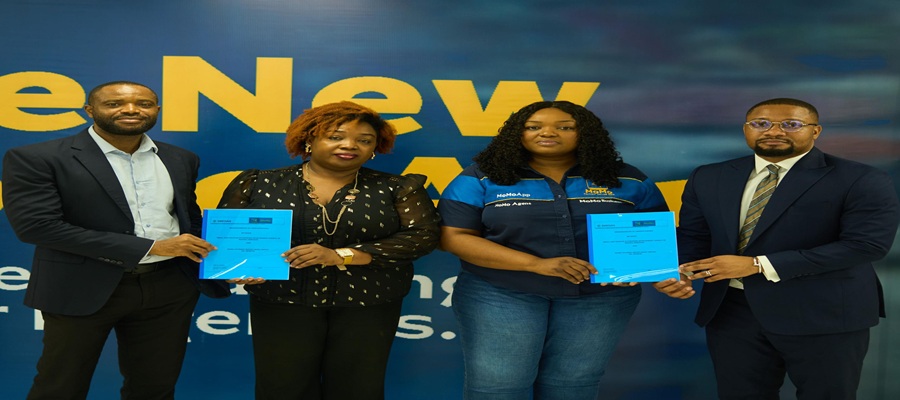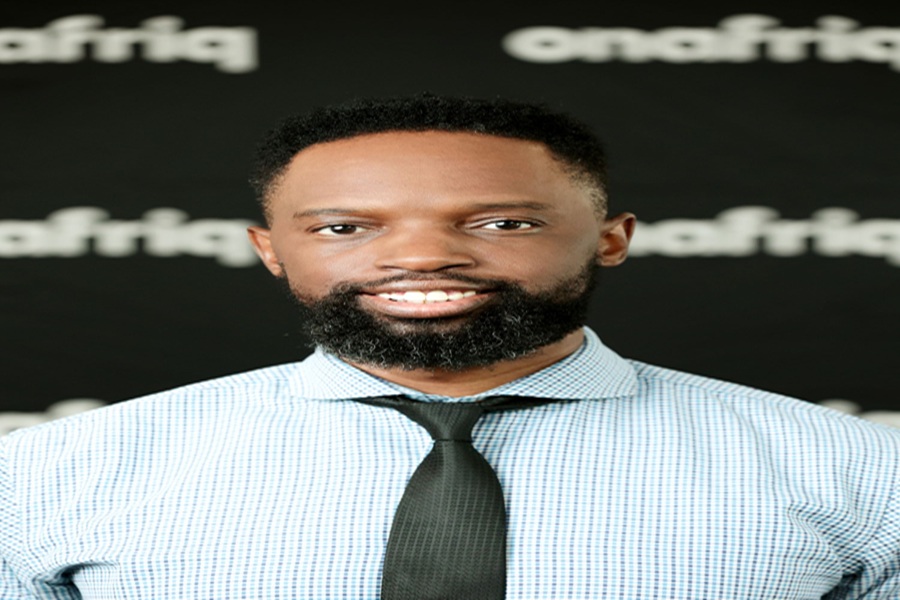Telecom
Google Strengthens Africa-wide Programmes to Keep Internet Users Safe Online

Google has announced a number of initiatives across Kenya, Nigeria and South Africa, bolstering its continued efforts to keep children, young people and families safe online.
Aligning with the theme of this year’s global Safer Internet Day, “Together for a better Internet”, Google has teamed up with several organisations across the continent to boost education efforts and develop programmes around online safety.
“With an estimated 346 million internet users that came online for the first time in the last year, and 376 million new social media users, there is no better time for us to help people stay safe online,” says Juliet Ehimuan, Country Director, Google Nigeria.
“We are working with nonprofits and social enterprises to advance their work through Google.org’s Africa Online Safety Fund, while also working with educational institutions and governments across sub-Saharan Africa in order to have a greater impact.”
Administered as part of the Africa Online Safety Fund, Google.org gave a grant to Impact Amplifier and the Institute for Strategic Dialogue, to run an open call across the continent to find the most innovative and impactful nonprofit organisations operating in this space. 26 social impact organisations across nine African countries have been selected to receive grants of up to $100,000 each.
The five selected in Nigeria include Epower, LagosMums, Velma Foundation, Hive Creative Guild and Teens Can Code. This funding will be used to boost projects that work to combat online vulnerabilities, disinformation and extremism aimed at children, the youth, families, schools and small and medium-sized businesses (SMBs).
Google has also collaborated with Nigerian author Nomthi Odukoya to create the children’s online safety book ‘How to be Safe Online’. Physical copies of the book will be distributed to 30,000 learners in Kenya, Nigeria and South Africa this month, which is also available online on the Read Along app.
“With more children, young people and families increasingly using the internet to learn and work in the face of the COVID-19 pandemic, online safety is a priority for everyone,” continues Juliet Ehimuan.
“We look forward to the continued empowerment of teachers, parents and guardians with tools to keep children safe online. Continued collaboration with government bodies like Kenya’s Communications Authority, Nigeria’s Public and Private Development Centre, and South Africa’s Department of Social Development, among others, will ensure that we have the necessary backing to make the internet better for all users, especially young children and families across the continent.”
Celebrate Safer Internet day with us by using the Password Manager to save your password with your Google account and Security Checkup. To learn more about our resources to help keep you and your family safer, please visit the Google Safety Center.
Telecom
MoMo PSB, SMEDAN Forge Pact to Digitise Nigeria’s SMEs

MoMo PSB, MTN Nigeria’s fintech powerhouse, sealed a game-changing pact with the Small and Medium Enterprises Development Agency of Nigeria (SMEDAN) on February 3 at its Victoria Island headquarters, unleashing digital and financial tools to turbocharge SMEs nationwide for seamless operations, revenue surges, and sustainable scaling.

MoMo PSB, SMEDAN
The partnership arms SMEDAN-registered merchants with MoMo’s multi-channel arsenal—apps, POS, USSD, partner portals, and custom platforms—to hoover payments across streams, automate payrolls, juggle tills and shop chains, and boss core business metrics from one slick dashboard.
This powerhouse duo targets Nigeria’s SME engine room, where digital chokepoints throttle growth, injecting MTN’s MoMo muscle to slash friction and unlock efficiencies for mama-put hustles to mid-tier factories alike.
Industry watchers hail the MoU as a masterstroke in President Tinubu’s economic revival playbook, fusing government SME scaffolding with private-sector fintech firepower to birth a new breed of digitally dominant entrepreneurs primed for AfCFTA conquests.
Telecom
MTN Ignites Teacher Revolution: 5,000 Digitally Armed for Phase Two

MTN Foundation and SAIL Innovation Lab have roared into Phase Two of their blockbuster Teachers Fellowship Programme, onboarding 5,000 elite educators from Nigeria’s 36 states and the FCT since January 13 to turbocharge public schools with cutting-edge digital wizardry and global teaching firepower.

MTN
This mobile-first crusade, laser-focused on arming primary and secondary school titans for the digital economy showdown, kicks off with a grueling four-week virtual bootcamp via WhatsApp and Google Classroom—slashing travel barriers for even the remotest rural warriors.
Organisers promise peer-to-peer fireworks and real-time gut-checks, capping Stage One with a virtual gala saluting milestones before culling the pack to a fierce “Top 500” via engagement, assessments, and hustle for Phase Two’s inquiry-based mastery and deep-dive digital metamorphosis.
MTN Foundation’s Executive Director Odunayo Sanya lit the fuse: “Teachers are the backbone of our education system. By empowering them with digital competencies and innovative teaching methods, we are directly investing in the future of our youth.
This Fellowship Programme is designed to ensure that our educators are not just keeping pace with global best practices but are actively shaping the next generation of innovators and leaders.”
Nigeria’s heftiest private teacher uprising scales from last year’s triumphs, minting classroom commandos as state ambassadors to ignite inquiry-driven, tech-fueled learning revolutions coast-to-coast.
Telecom
Onafriq, PAPSS Launch Wallet-Based Payments Pilot from Nigeria to Ghana

Onafriq Nigeria Payments Ltd, a CBN licenced payment service provider, partners with The Pan-African Payment and Settlement System (PAPSS) to pilot the continent’s first wallet-based outbound payments from Nigeria to Ghana – fully in Naira and instant, without relying on hard currency conversion, in partnership with Banks and Mobile Money Operators.

The pilot service, approved by the Central Bank of Nigeria (CBN), enables cross-border intra-Africa payments for individuals, merchants, and traders.
In particular, the service will benefit SMEs, the real engine of intra-African trade; all now have access to a faster, cheaper way to reach customers and suppliers across the border.
By reducing barriers to cross-border trade, the new service will allow these businesses to grow their addressable markets and activity. From the 1st of December, this service will be fully operational for a 6-month period.
Through the partnership with PAPSS, Onafriq is supporting the operationalization of the AfCFTA (Africa Continental Free Trade Area) mandate.
The mandate itself is driving tariff-free trade for the 54 member states of AfCFTA. Within the partnership itself, Onafriq provides the mobile money rails, with an ecosystem consisting of over 1 billion mobile wallets.
Meanwhile, PAPSS brings a network of over 160 commercial banks, representing an ecosystem of more than 400 million bank accounts across its 19 African countries of operation.
The two partners are essentially seamlessly connecting two worlds: mobile money and banking. As a consequence, intra-African trade transactions will take place more easily and opportunities will be created.
Currently, Africa is made up of bank and mobile-led markets, with siloes often inhibiting transactions between these economies. However, this partnership will remove these boundaries. With over one billion mobile wallets and 500 million bank wallets across Africa, this partnership will allow for cross-border collaboration at scale.
This partnership builds on Onafriq and PAPSS’ existing partnership for payments into Ghana, announced earlier this year.
Mxolisi Msutwana, Managing Director Anglophone West Africa said, “Our work with PAPSS shows what collaboration at scale can unlock—seamless, secure connections between banking systems and mobile money ecosystems.
“This is how we open bi-directional trade corridors, reduce costs for businesses, and give African enterprises the rails they need to trade with confidence in their own currencies. The vision is continental, but it starts with practical steps like this one.”
Ositadimma Ugwu, Chief Information Officer, PAPSS, added “Too often, African businesses and individuals see borders as roadblocks instead of opportunities. With this step, we’re challenging that mindset, giving Nigerians the ability to send value next door with the same ease as sending a text message.
“Our vision is simple: make Africa’s borders invisible to payments. This pilot makes that a reality, moving us closer to a continent where payments don’t pause at the border.”
This new Nigeria-to-Ghana outbound capability builds on the successful Ghana-to-Nigeria instant payments corridor launched earlier this year – further proof that Africa’s payments future is local, instant, and inclusive.

 E-Financial2 days ago
E-Financial2 days agoAccidental Billionaire Opts for Jail Instead of Returning Money Credited Him by Mistake

 News2 days ago
News2 days agoUS Set to Deport 79 Nigerians on Criminal List

 News2 days ago
News2 days agoUngoverned AI is Quietly Scaling Risk in Nigeria – Dr. Naiho

 E-Financial2 days ago
E-Financial2 days agoSEC Warns of Potential Ponzi-style Risks in AURUM BOT, ModMount

 Telecom2 days ago
Telecom2 days agoAirtel Nigeria Commits to Boosting Nigeria’s Digital Infrastructure

 E-Business1 day ago
E-Business1 day agoOADC Lagos Reinforces Commitment to Local Data Hosting and Digital Transformation @ NDPC’s National Privacy Week Summit

 Telecom2 days ago
Telecom2 days agoGoogle, African Partners Launch WAXAL to Empower 100m Africans in AI Era

 News2 days ago
News2 days agoFirst Lady Commissions Dream Centre @ OAU



























